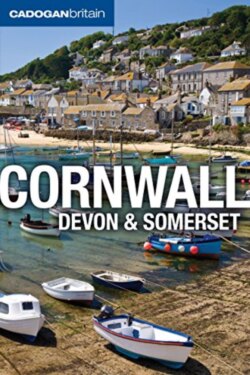Читать книгу Great Book of Spoon Carving Patterns - Joseph Fullman - Страница 25
На сайте Литреса книга снята с продажи.
Literature
ОглавлениеMany of the greats of English literature either have come from the Southwest or have used it as inspiration for their works. These have included:
Jane Austen (1775–1817). The foremost satirizer of Georgian social manners lived in Bath for around five years at the turn of the 19th century and set two of her novels here, Northanger Abbey and Persuasion (see here).
John Betjeman (1906–84). The poet laureate was born and laid to rest in the Cornish village of Trebetherick. All his life he maintained a great fondness for the West Country, producing numerous poems on the region and in the 1930s writing guidebooks, known as the ‘Shell Guides’, on Cornwall and Devon, aimed at motoring tourists.
R.D. Blackmore (1825–1900). Blackmore’s most famous work, Lorna Doone, is set on Exmoor at the time of the Monmouth Rebellion (see here).
Agatha Christie (1890–1976). The world’s bestselling crime writer was born in Torquay and spent her entire life in the region, from 1938 onwards residing at the Greenway Estate on the River Dart where she wrote many of her best-known works (see here).
Samuel Taylor Coleridge (1772–1834). The poet was born in Ottery St Mary, and wrote many of his best works, including The Rime of the Ancient Mariner and Kubla Khan whilst living in Nether Stowey, drawing inspiration from his nocturnal roamings in the Quantocks and on Exmoor in the company of his close friend, William Wordsworth (see here).
Daniel Defoe (1660–1731). Defoe reputedly met Alexander Selkirk, the real-life castaway who inspired his novel Robinsoe Crusoe, at the Llandoger Trow pub in Bristol (see here).
Sir Arthur Conan Doyle (1859–1930). The Scottish creator of Sherlock Holmes worked as a doctor in Plymouth and Portsmouth before becoming a writer. He was inspired to write one of his most famous Holmes’ stories, The Hound of the Baskervilles, following a trip to Dartmoor (see here).
Charles Kingsley (1819–1875). The author of The Water Babies and Westward Ho!, and cheerleader-in-chief for the North Devon landscape, was born in the village of Holne on Dartmoor, and later moved to Clovelly (see here).
D.H. Lawrence (1885–1930). Lawrence lived in Zennor during the early years of World War I where he completed one of his best-known titles, Women in Love.
Daphne du Maurier (1907–1989). Though born in London, du Maurier spent most of her life in Cornwall and set her three most famous novels there, Jamaica Inn, Frenchman’s Creek and Rebecca.
Henry Williamson (1895–1977). Williamson’s best-loved novel, Tarka the Otter, which follows the adventures of the eponymous aquatic mammal, was set in and around the rivers of North Devon. Today you can follow the Tarka Trail along the banks of the rivers Taw and Torridge (see here).
William Wordsworth (1770–1850). Wordsworth lived at Alfoxton House in the Quantocks in Somerset for a year in 1797–8 where, in conjunction with his great friend and fellow poet, Samuel Taylor Coleridge, he produced the Lyrical Ballads, often described as the ‘manifesto for Romanticism’.
